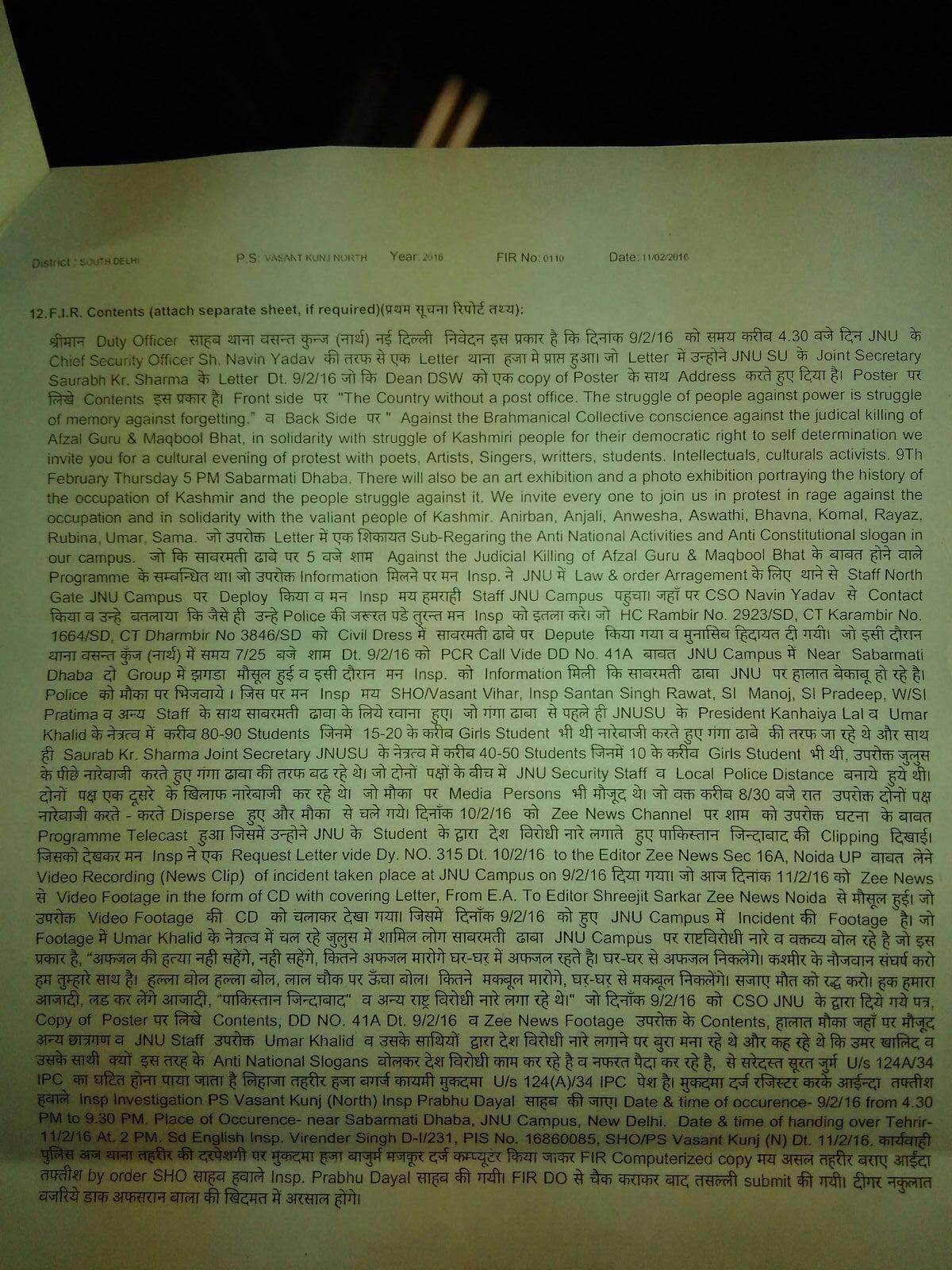
The FIR against Umar Khalid and Kanhaiya Kumar
JNU Students Union President Kanhaiya Kumar arrested on charges of sedition for allegedly being part of anti-national activities in JNU, has been granted an interim bail for six months by the Delhi High Court. Bail order was pronounced by Justice Pratibha Rani.
Court has asked Kanhaiya to furnish personal bond of ₹ 10,000 and and an undertaking to the effect that he will not participate actively or passively in any activity which may be termed as anti-national. Further he has to provide one surety, preferably a faculty member of JNU and has been prohibited from leaving the country without court’s permission.
Further as President of JNU Students Union, he has been asked to make all efforts within his power to control anti-national activities in the campus. His surety has also been asked to ensure that his thoughts and energy are channelized in a constructive manner.
In his writ petition before the court, asserting his fundamental rights guaranteed under Article 19(1)(a) of the Constitution of India, Kanhaiya submitted that the utterances (speech or slogans) attributable to him cannot be termed to be in violation of any law and as such he has not committed any offence.
Senior counsel Kapil Sibal, appearing on behalf of Kanhaiya, submitted before the court that Kanhaiya had no role in the events in question and that his name does not even appear on the poster about the topic of that event, contents of which were considered anti-national by JNU authorities. Sibal submitted that Kanhaiya’s role was limited to the extent that he reached the spot in his capacity as President of JNU Students Union, on coming to know about the tension between the two groups and after the situation came under control, he left the spot.
Additional Solicitor General Tushar Mehta, who represented the State referred to the statement of various witnesses recorded under Section 161 CrPC to describe the role played by Kanhaiya in organising as well as during the event. He submitted that merely because Kanhaiya was not a signatory on the application form for seeking permission for the programme, it was not sufficient to infer that he had nothing to do with the event.
Rahul Mehra, standing counsel (criminal) who appeared for the Government of NCT of Delhi submitted that in the facts and circumstances of the case, Kanhaiya may be released on bail.
In her order, Justice Rani observed:
47. The investigation in this case is at nascent stage. The thoughts reflected in the slogans raised by some of the students of JNU who organized and participated in that programme cannot be claimed to be protected as fundamental right to freedom of speech and expression. I consider this as a kind of infection from which such students are suffering which needs to be controlled/cured before it becomes an epidemic.
48. Whenever some infection is spread in a limb, effort is made to cure the same by giving antibiotics orally and if that does not work, by following second line of treatment. Sometimes it may require surgical intervention also. However, if the infection results in infecting the limb to the extent that it becomes gangrene, amputation is the only treatment.
49. During the period spent by the petitioner in judicial custody, he might have introspected about the events that had taken place. To enable him to remain in the main stream, at present I am inclined to provide conservative method of treatment.
50. Taking into consideration the facts and circumstances, I am inclined to release the petitioner on interim bail for a period of six months.
Read the complete judgment here:
http://lobis.nic.in/ddir/dhc/PRA/judgement/02-03-2016/PRA02032016CRLW5582016.pdf
